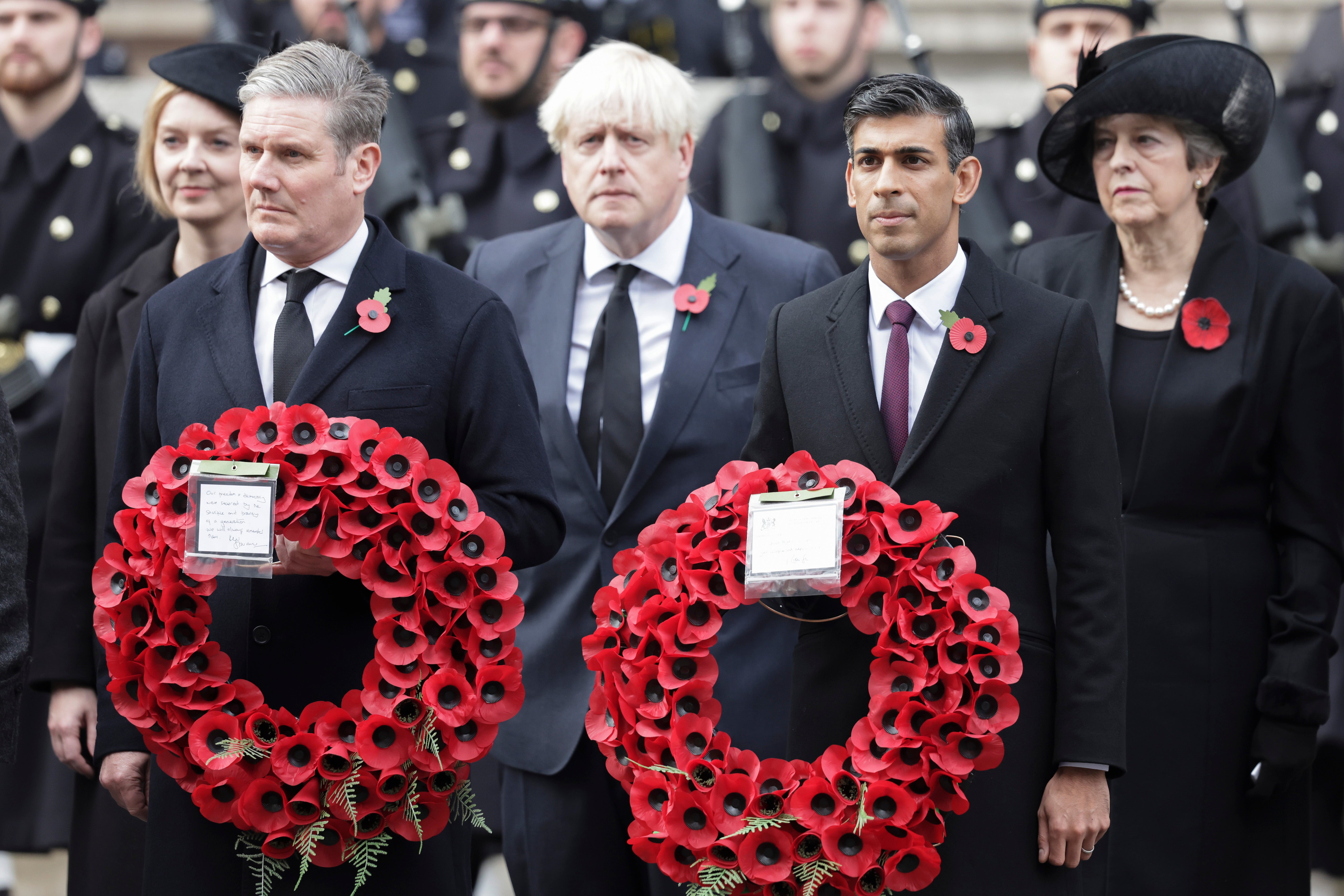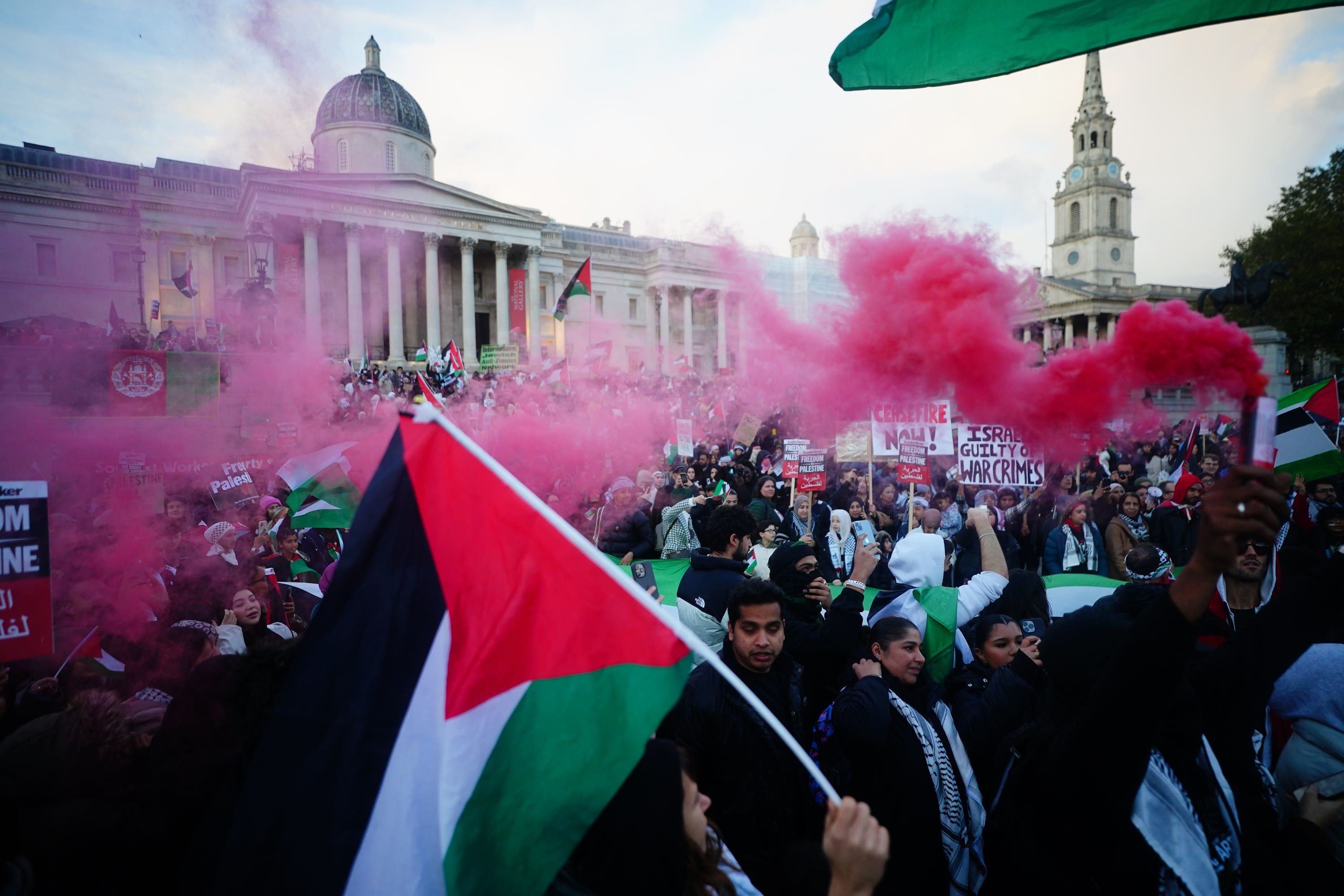Royal British Legion backs pro-Palestine demonstrators’ right to protest amid march row
‘The British armed forces play a vital role in protecting the rights and freedoms of everyone in UK society’
Your support helps us to tell the story
From reproductive rights to climate change to Big Tech, The Independent is on the ground when the story is developing. Whether it's investigating the financials of Elon Musk's pro-Trump PAC or producing our latest documentary, 'The A Word', which shines a light on the American women fighting for reproductive rights, we know how important it is to parse out the facts from the messaging.
At such a critical moment in US history, we need reporters on the ground. Your donation allows us to keep sending journalists to speak to both sides of the story.
The Independent is trusted by Americans across the entire political spectrum. And unlike many other quality news outlets, we choose not to lock Americans out of our reporting and analysis with paywalls. We believe quality journalism should be available to everyone, paid for by those who can afford it.
Your support makes all the difference.The Royal British Legion has defended pro-Palestinian demonstrators’ right to protest amid a furious row over whether a rally should be allowed to go ahead on Armistice Day.
The RBL has urged protesters to be peaceful and show respect as mourners flock to London this weekend to remember our war dead.
In a statement, the armed forces charity said: “The British armed forces play a vital role in protecting the rights and freedoms of everyone in UK society, including the right to protest.
“We are not aware of any protests during RBL Remembrance events, and we hope Remembrance events can go ahead over the weekend without disruption.”
Their words come as the Metropolitan Police is preparing for a vast policing operation over Remembrance weekend, with up to 100,000 people expected to join a pro-Palestine march on Saturday.
There are fears of clashes with far-right groups who have vowed to “defend” the Cenotaph after a week-long row erupted over whether the “disrespectful” rally should be banned.
Met commissioner Sir Mark Rowley has resisted pressure from Rishi Sunak and Suella Braverman to block the event, insisting the risk of disruption does not meet the legal threshold to halt the march.
The coalition of groups, which includes the Palestine Solidarity Campaign (PSC), Stop the War and the Muslim Association of Britain, will march from Hyde Park at midday on Saturday - about a mile from the war memorial in Whitehall - to the US embassy in Vauxhall, south of the Thames. The event begins an hour after two-minute silence is observed at 11am.

The RBL hosts the Festival of Remembrance at the Royal Albert Hall, which is attended by the King and Queen, on Saturday.
There are no demonstrations planned for Sunday, when the RBL will join hundreds of service men and women, members of the royal family and politicians for The National Service of Remembrance at the Cenotaph in Whitehall.
The National Police Chiefs Council has revealed London’s police force will be bolstered by more than 1,000 extra officers across the weekend, with reinforcements working on both Armistice Day and Remembrance Sunday.
Exclusion zones and facial recognition technology could also deployed as the Metropolitan Police vows to use every power at its disposal to stop commemorations from being disrupted.
One of the organisers of Saturday’s march demanding a ceasefire in Gaza has predicted that more than half a million people will attend the event.
The Stop the War coalition said coach companies across the country are reporting that all their vehicles are fully booked, with waiting lists in some areas.

John Rees, from the group, said the protest in London will be “truly historic”, exceeding the half a million he believes joined a previous protest in the capital.
“We are convinced it will be the biggest demonstration so far over Palestine. Our local groups up and down the country have reported they’ve sold out of seats on hundreds of coaches,” he said.
Lindsey German, the group’s convenor, said: “Our local groups in towns and cities across the UK, along with coach companies, are telling us that every one of their coaches have been booked to bring people to London. This is comparable only to two million strong protest against the Iraq War in 2003.”
The prime minister previously warned Met chief Sir Mark that he would hold him “accountable” for allowing the “disrespectful” demonstration to go ahead, but later conceded that the right to protest was among the freedoms that veterans had fought for.
However Ms Braverman sensationally accused the Met of bias for allowing the pro-Palestine rally to go ahead in an article which was not cleared by No 10.
The chair of the NPCC defended the forces’ operational independence. Chief Constable Gavin Stephens said: “In policing we need the space to make difficult operational decisions in an independent manner.
“The decisions that we take are not easy ones, but we do so impartially, without fear or favour, and in line with both the law and our authorised professional practice.”
Mr Stephens said it is “really important that the public debate doesn’t feature in our operational decision making” because it would “fundamentally undermine” how policing works in the UK.
NPCC gold lead Chief Constable Chris Haward added that banning a march would not stop people gathering.
“Even if you ban the march you cannot ban the assembly. You will still expect to have 100,000 people, maybe more, turning up, who will then be in a static position,” he said.
Join our commenting forum
Join thought-provoking conversations, follow other Independent readers and see their replies
Comments